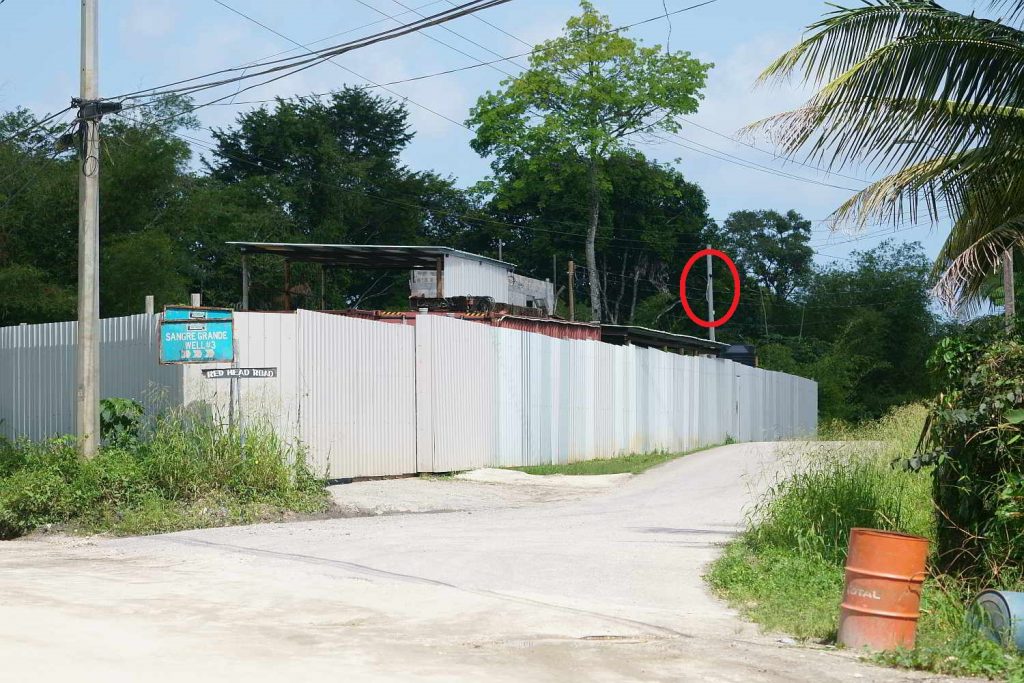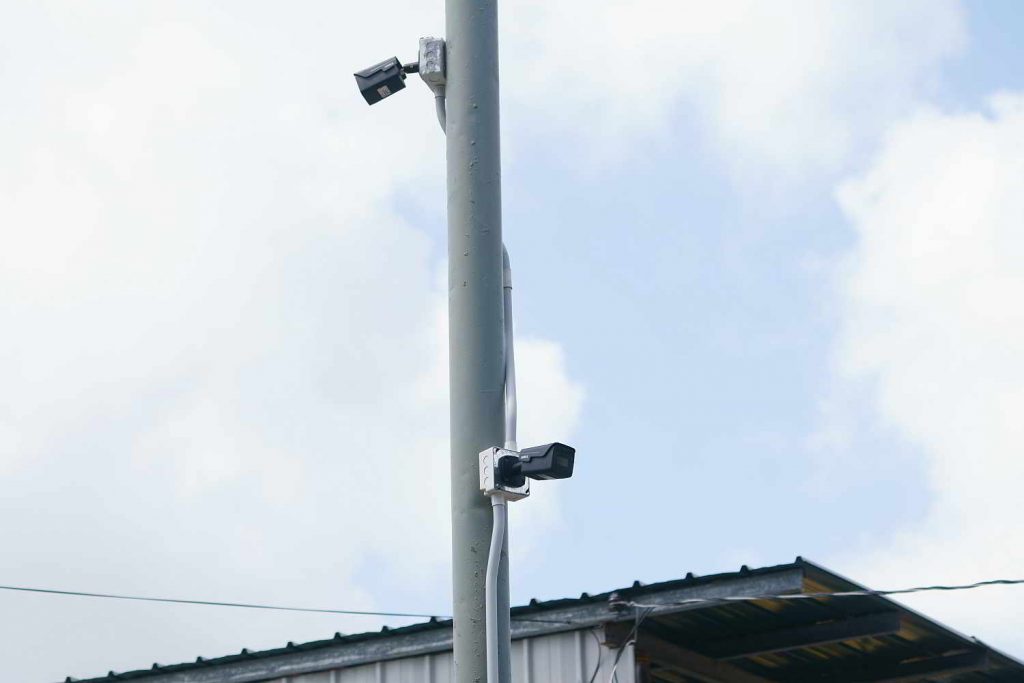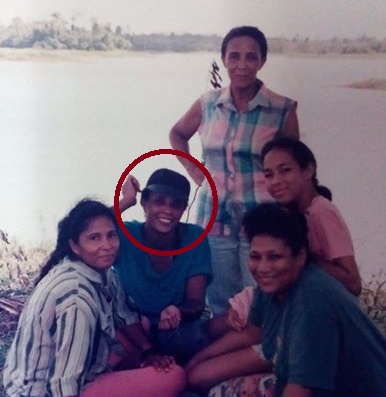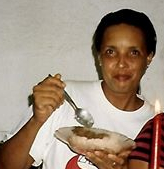The Trinidad and Tobago police service is a criminal enterprise. There is no other way to describe them, given their known track record among the many citizens who have had the misfortune to come within their gambit. Furthermore, what is even more disturbing is our past Prime Ministers, including the present, Dr. Keith Rowley, have done nothing to address the rampant criminality and corruption that’s pervasive throughout our police service, because they too are just as corrupt.
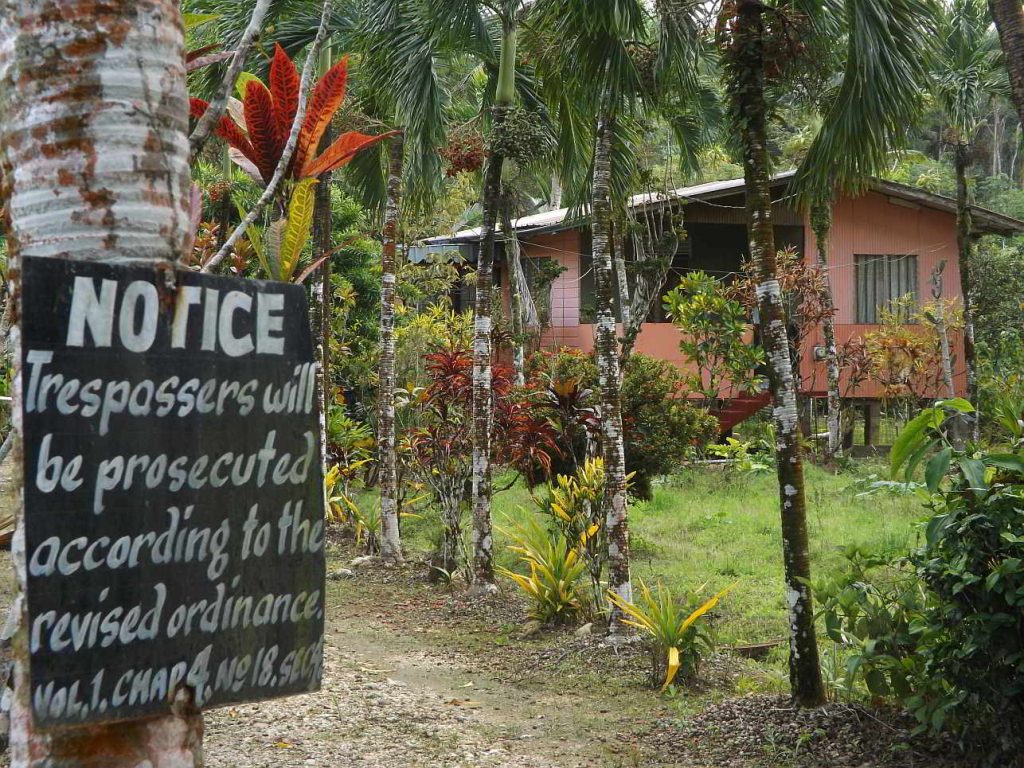
The recent murder of a family member, Lucy Jennifer Granado, better known as Jenny, whose body was found on February 9th, 2020 who lived in Read Head Trace, Turure, Sangre Grande, and the resulting police ‘investigation’, has served to further highlight how calloused, incompetent, completely depraved, as well as lacking in humanity, the police service is in Trinidad and Tobago. This case has also allowed others, who have suffered likewise at the hands of the police, to come forward and share their stories with our family of the refusal of officers to take statements, their failure to properly investigate crimes reported to them, theft of personal items removed from crime scenes and never returned to victims and/or their family members, their refusal to follow-up on these incidents, and, in some cases, ignoring evidence and information which could possibly lead to the apprehension of suspects.
Trinidad and Tobago has become so depraved that even members of the media fail to perform their due diligence when it comes to reporting on the obvious neglect and criminal conduct by our police service. They are even reticent to criticize the police. Where can the citizens of Trinidad and Tobago go when the mechanisms of accountability i.e. the Police Complaints Authority and the media don’t take up their cause?
I personally sent emails to the news desks and editors of all three major daily newspapers – The Trinidad Guardian, The Trinidad Express and Newsday. I provided them with additional information, including pictures, which were not highlighted in their initial reporting about the murder. However, none of the afore mentioned news outlets acknowledged receipt of my email.
When Jenny’s body was discovered, her nephew attempted to call police on the Emergency 999 hotline for about half an hour and only got a recording. He eventually got them to respond by calling our brother who is a police officer.
“How could they have missed these things,” he queried?
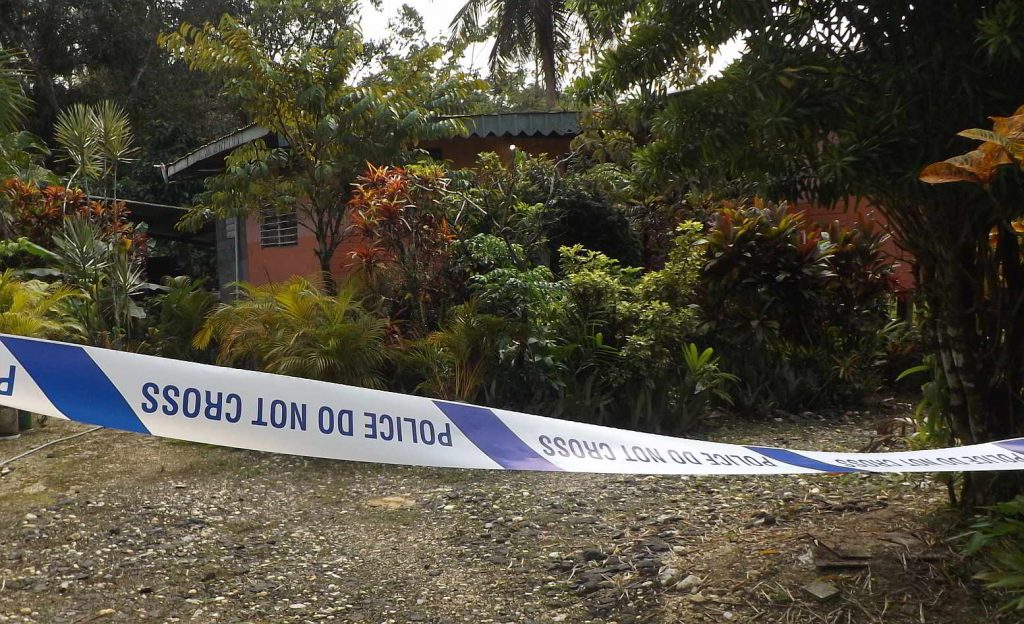
When the police did arrive, investigators failed to carry out a comprehensive search of Jenny’s bedroom where her body was found. It was only several days later, after they revisited the crime scene, they recovered a pillow caked in blood behind a chest of draws and her blood splattered jeans next to her bed. Additionally, a member of the family asked about a weed wacker (brush cutter) that was known to be kept in the house. Police claimed that it was likely stolen by the perpetrator(s) of the murder. However, the item in question was next to her head chained under the bed, reported her nephew who discovered her body.
In more disturbing developments for the family, Jenny’s house was burned to the ground, a little over a week after her murder. Arson is suspected, because an eye witness saw a male suspect in lightly coloured camouflage clothing with a black t-shirt covering his head and face leaving the premises, just before the fire. Also, another witness identified an individual, who is known in the area as one of the persons Jenny frequently reported to the police for stealing her oranges, leaving Red Head Trace that morning mere moments after fire engulfed the house. What’s more, there are security cameras at the entrance to Red Head Trace, and despite police investigators telling the family they had recovered footage from those cameras, this turned out to be false. Jenny frequented the premises where the cameras are located, and the head of security for the compound told me police never requested the footage from those cameras. Why lie?
Despite Jenny’s home being declared a crime scene, for a second time, by the head fire officer who responded to the house fire, to this date, no investigation was ever conducted to confirm or rule out arson.
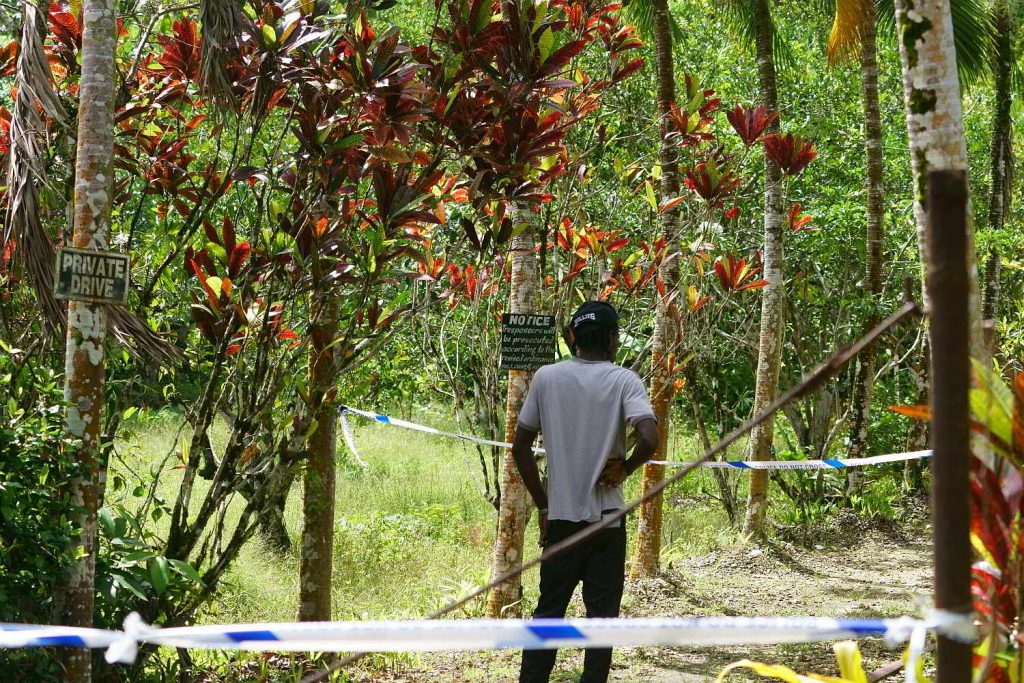
Inspector Anil Maharaj, who is based in Arouca and who is leading the investigation into Jenny’s murder, claimed that the fire investigation is not his responsibility. However, when the fire department was contacted, they told the family that the police are the one’s responsible for requesting such an investigation. How can anyone, who is spearheading an investigation into a murder, not see a possible link of that crime with the malicious act of burning down the home of the victim? What in the name of the living God is going on here?
Only a couple of weeks after Jenny’s murder, family members provided police with critical evidence which could link the alleged murderer(s) to Jenny’s killing. Police were given information about an item stolen from Jenny’s home in the suspect’s possession, a name and an address. Yet, to this date, they have not acted upon it. The suspect is still walking around free.
The police told the family they couldn’t arrest the suspect. However, this statement contradicts their own actions only 48 hours after Jenny’s body was discovered. They arrested two suspects, and they held them for several days. However, both were eventually released. Why not, at least, bring the suspect the family alleges has the stolen item belonging to Jenny in for questioning? Let him provide an alibi for the time-period the murder is alleged to have taken place. Also, let him explain how he came to have an item belonging to the victim in his possession. This is common-sense, and it is basic police work 101.
“I know many of you will be asking, ‘what is the government doing about crime?’ But, I would like to ask, what are you doing…?”
— Glenda Jennings-Smith, MP for Toco/Sangre Grande
This approach by the Trinidad and Tobago police service is incongruous with the professional conduct of police departments in other parts of the world. Once they have a description of a suspect it’s given to the media for circulation so members of the public can be on the look out for anyone fitting that description. Also, members of the public would also be warned that the suspect should be considered, in this case, armed and extremely dangerous. Additionally, the police welcome any tips or possible leads as to the suspect’s whereabouts. What’s more, they move quickly to apprehend the individual(s) and to bring them in for questioning, should any leads pan out. A case is either established or falls apart based upon the evidence gleaned by investigators during their interrogation of the suspect(s). Contrary to the afore mentioned approach, local police involved in the ‘investigation’ of Jenny’s murder cautioned members of the family not to divulge information about the suspect. This is insane. The lives of other persons could be put at risk the longer this individual is allowed to be on the loose, due to the callous and evil nature of the crime it is believed he committed.
Jenny was not only brutally raped and murdered, but the person(s) who committed this heinous and violent act, bashed in her head, and, according to the autopsy report, practically broke every rib in her body. Family members could only identify her by her feet. This is someone who needs to be apprehended ASAP. Yet, several months later, this individual is still at large, despite the police having been given a possible location of his whereabouts.
Furthermore, ask yourselves this question Trinidad and Tobago. If the police recovered DNA evidence from the crime scene, as they claimed, why wouldn’t they want to validate their efforts by apprehending a suspect? Unless, as disturbing as this may be to believe, they didn’t secure any evidence, but they purported to in order to assuage the victim’s family and to continue their ‘investigative’ ruse. Given the facts that they lied about recovering footage from the security cameras at the entrance to Red Head Trace, nor did they question the eye witnesses in relation to the house fire, why should Jenny’s family believe anything they say? As it stands, victims’ families don’t have any means by which to confirm whether any evidence, DNA or otherwise, was ever recovered or sent for testing.
One has to really wonder, if this why we have so many ‘unsolved’ crimes, including murders, in Trinidad and Tobago? Could it be, after all this time, that our police service has been playing us for patsies?
Again, based upon investigations conducted by Jenny’s family, it was discovered that the prime suspect in her murder carried out a daylight robbery, several years earlier, in front of her property. He, and an accomplice, viciously attacked and chopped a resident of Red Head Trace on the head and robbed him of his cellphone and cash, while he was on his way to work.
Similarly, it was the victim’s family who found the stolen cellphone and money in the suspect’s possession. Despite this, and having made a report to the Sangre Grande police station, nothing was done to apprehend him. Now, Jenny’s family believes this is the same individual responsible for killing her.
On a similar note, regarding the failure of our police service to take the appropriate action, despite members of the public providing assistance to them, my brother had his house broken into recently. His flat-screen television and brush cutter (weed wacker) were stolen. My brother tracked down the stolen items and reported there location to the Sangre Grande police station, and they did nothing about it either. Unfortunately, for many citizens, this scenario is all too common in Trinidad and Tobago.
Just a day before Jenny was murdered, she went to the Sangre Grande police station…
— Insight News Network
Therefore, when our senior police officers make appeals for assistance from the public in their ‘fight against crime’, it’s all just a publicity stunt. It’s also an attempt to suggest to the society at large that individuals are stymieing their efforts to solve criminal cases. This is not true, because most of the perpetrators of certain crimes are known in the area(s) they despoil as repeat offenders. Consequently, many victims are able to provide the police with clear leads. In fact, some of the perpetrators are also known to the police. However, it is a common practice by the police, and even members of government, to place the onus on the victims of crime.
The following proves my point. The Member of Parliament for the Constituency of Toco/Sangre Grande and a Parliamentary Secretary in the Ministry of National Security, The Honourable Glenda Jennings-Smith, unconscionably and shamelessly suggested to Jenny’s grieving family and friends, at her funeral reception, of all places, that it was they, as well as members of the public, who needed to take appropriate steps to safeguard themselves.
“I know many of you will be asking,” Jennings-Smith said, “‘what is the government doing about crime?’ But, I would like to ask, what are you doing…?” Let me remind everyone that Jenny was ambushed and murdered at her home. Please refer to the story I wrote about the events surrounding Jenny’s murder, which I placed on my Facebook page
Police stations throughout Trinidad and Tobago make a concerted effort, when at all possible, not to take reports from members of the public by engaging in intimidation and subterfuge. As a consequence, the true number of crimes committed in Trinidad and Tobago are grossly under reported. And, in a lot of instances, no action is ever taken.
On numerous occasions, police officers would feign taking notes on scraps of paper and promise the individual making the report it will be entered into the station diary later. In many instances, it never is. Why? Because they are legally obligated to act on any report entered into the station dairy, and many of them are lazy as well as indifferent towards their sworn oath to protect and to serve the public. However, should something more serious occur from the incident reported to them earlier, and questions are raised by senior officers, they can always claim that no report was ever made to the police.
In fact, just a day before Jenny was murdered, she went to the Sangre Grande police station, for the umpteenth time, to make a report describing the alleged suspect, for her murder, whom she caught stealing her oranges. Unlike others, who would runaway when they were discovered, this man boldly stood his ground, when he was confronted. The police, as was their practice during her numerous other reports, did not act on her claims, and they refused to give her a receipt as evidence that she made the report.
While police stations are duty bound to provide the individual making a report a record of the complaint taken from them, what’s referred to as a receipt in Trinidad and Tobago, they don’t always do. They sometimes tell citizens that they’ve run-out of receipts, or they just refuse to provide one. When they do issue receipts, they may never follow-up on the incident reported to them anyway.
The Following Represents Some of the Instances When Officers Refused to Take Statements or Act on My Reports.
Sometimes officers refuse to act against an individual who is alleged to have committed an offence, because they know the person is a good friend of, or related to, a senior officer, or a key player in a legal/illegal money-making enterprise that they are profiting from. This was the case with my former neighbour Carver Felix who was my nemesis for close to 12 years. He raised and trained pedigreed canines for the police service, individual officers and other wealthy clients. The criminal bent of our police service is primarily orchestrated by high-ranking officers with complicit juniors in tow.
It was inspector Pierre of the La Horquetta police station who ensured that none of my reports against Felix – who stole gravel from me, let loose his animals into my crops, encroached on my land, destroyed personal property and who threatened to kill me and bury me on my land – were never acted upon by officers under his command, despite how egregious or whatever evidence of wrong-doing by Felix I was able to provide – some of which included the title to my property and pictures involving some of these allegations. Inspector Pierre closes case without investigation – November 17, 2008
The inspector for the Chin Chin police station refused to allow my brother to recover his stolen welding plant, acetylene bottles and other tools placed on lock-down by his brother, Karl Swamba, because my brother refused to renegotiate the price of work he had been contracted to do for the Fantasy Guest House owner. Despite my brother’s numerous efforts to recover his tools, and those of his employees, to this day, none of those items were returned. Instead, the Inspector advised my brother to take the matter to court.
This is one of the many tactics used by the police service of Trinidad and Tobago to thwart the efforts of citizens to get them to act against an individual receiving their protection. They tell the complainant to take the matter to the courts. If the individual should follow their advice, and something further should arise between the parties, while a court case is being adjudicated, and the aggrieved party attempts to make another report to the police, they will be told, the police cannot intervene, because the matter is before the courts.
Court cases are another mechanism of extreme frustration for citizens seeking redress in Trinidad and Tobago. Depending upon the stakes involved, a case can take many years. If the wronged party doesn’t have sufficient funds to pay a bribe, justice will crawl to its eventual outcome, or may never be realised. Moreover, many of our lawyers sacrifice their client’s best interests by conspiring with one another to gain a result that’s financially beneficial to them. In most court cases in Trinidad and Tobago, attorney-client privilege only exits in television dramas.
Another method police officers of Trinidad and Tobago use to enrich themselves is by capitalising on visits to crime scenes. An individual who had a professional working relationship with the Trinidad and Tobago Police Service once warned me to never allow them to enter my home, because they are rabid pilferers. Sadly, they use these opportunities to steal items from victims.
When Jenny’s cellphone was discovered missing, it was her family who found it less than 200 feet behind her home. Police investigators took possession of it with the stated aim of getting finger-print evidence. While the police claimed they weren’t able to recover any viable prints from the phone, they refused to return it. The reason they gave was that the investigation is still on going. If an item does not have any evidentiary value, why hold on to it? Could it be because the phone is a Samsung Galaxy S8, which is valued at approximately $8,000.00 TT dollars?
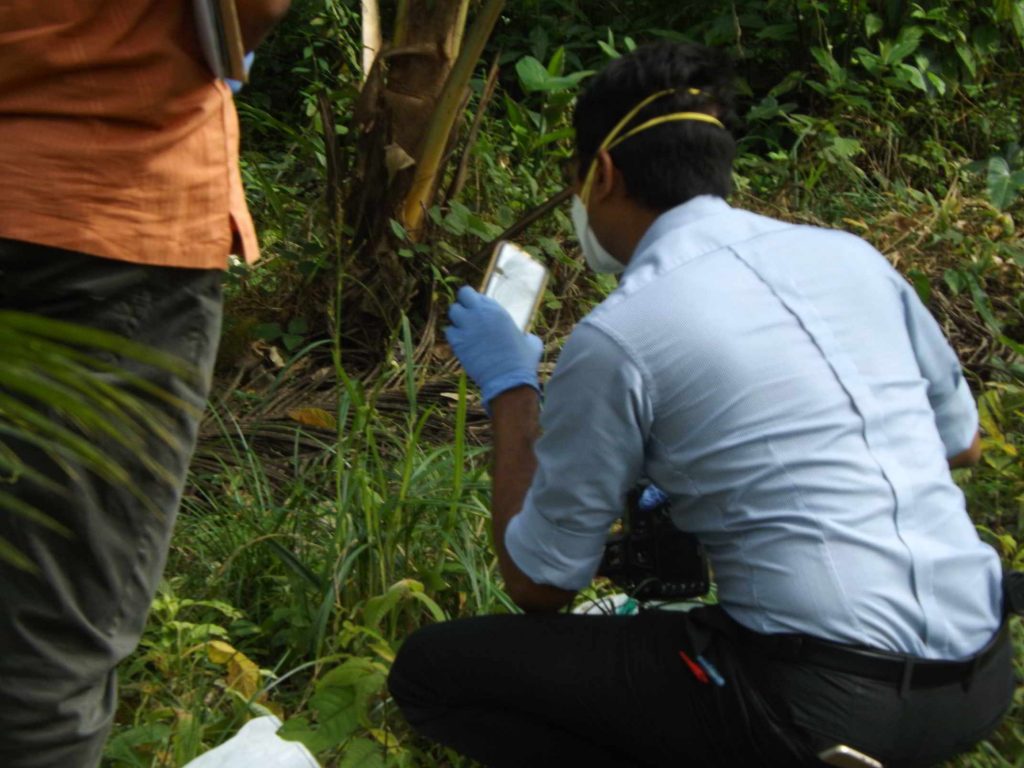
The primary interest the family has in recovering the phone stems from the fact it contains many photos of Jenny with loved ones and friends. The fire that destroyed her home also destroyed precious family photos and memorabilia that were in the house.
Police investigators also removed a number of other items from Jenny’s home, which they claimed “did not belong in the home”, under the pretext of securing additional evidence. How would they know what “did not belong in her home”? A list of the items removed by the police was never provided to the family.
A neighbour told me his house was broken into, and his wife’s jewellery was stolen. Police investigators took the ornate and expensive jewellery box in which they were kept for finger-print analysis, and despite numerous requests for it to be returned, they never got it back.
A co-worker said thieves broke into her home, and police, during their ‘investigation’, stole one of her expensive bottles of alcohol.
A woman whose car was stolen from her driveway had her joy of learning it was recovered by the police short-lived, when they told her someone else also claimed ownership of the vehicle, and, as a result, they couldn’t return it to her. Despite providing documents proving her ownership, and after making countless attempts to recover her car failed, out of utter frustration, she let them keep it.
The sister of an acquaintance of mine, said both she and her adult son were eventually compelled to move from their home in St. Augustine, because her neighbour was finally able to scare them away after almost burning down their residence with both of them inside. His motive, she claimed, was his desire to expand his rental property onto their land in order to accommodate more U.W.I. (University of the West Indies) students. She also alleged, he boasted that it didn’t matter how many times they made reports to the St. Joseph police station, because he had bought them off.
I haven’t made these things up. These are people’s real-life experiences, which never come into the light of public scrutiny or awareness. I can attest personally to everything I’ve written here, and I can provide sources for every single one of these accounts. However, I won’t, because of the vindictive nature of our police service and the complicity of our public officials who fail to hold them accountable. What’s more, they don’t provide protection for those who are willing to testify against members of the police service.
Furthermore, filing complainants with Trinidad and Tobago’s Police Complaints Authority, as I and many other citizens of this country have discovered, is a complete waste of time. The law, as it is currently written, tasks the police with investigating themselves. Consequentially, in a lot of cases, nothing comes out of these complaints.
Dwayne Gibbs, a Canadian and a former Trinidad and Tobago Commissioner of Police, along with his compatriot, Deputy Commissioner of Police, Jack Ewatski, provided this country, albeit for a brief period of time, a noticeable and distinctive contrast in what true policing really is.
After almost a decade of threats and countless infractions perpetrated against me by my former neighbour, Carver Felix, I took the unique step of posting a brief account of my numerous visits to the La Horquetta police station including my meetings with senior police officers on my website – https://www.insightnewsnetwork.com/trinidad-and-tobago-police-service-corrupt-at-its-core/ I forwarded this to the then Deputy Commissioner of police Jack Ewatski via a text message to his cellphone. Within minutes he responded. However, his handling of the situation resulted in only a brief respite for me, because both he and Dwayne Gibbs resigned shortly afterwards. The morning after their resignations, things returned to ‘normal’ – harassment, physical violence and threats against me continued. I felt compelled to take this action, because none of the previous three local Commissioners of Police, despite reaching out to them, did anything to assist me – Everald Snaggs, Trevor Paul and Acting Commissioner of Police James Philbert.
The life of Lucy Jennifer Granado, better known as Jenny, mattered to those who loved her, as well as the lives of numerous other victims of similar crimes, which remain unsolved in this country.
— Insight News Network
At this point, it is important to provide my readers with some much needed background into my dealings with my former neighbour Carver Felix. Felix came to occupy the agricultural property next to mine (Lot number 10, Churchill Roosevelt highway, Hadaway Lands, Arima), because its owner, who shall remain nameless, brought him there as a caretaker for her property. Some time later, when she attempted to have him vacate the premises, Felix used fear, threats and intimidation along with the assistance of the La Horquetta police and other unscrupulous individuals in the Lands and Survey Division to ‘win’ a judgement in Arima’s Third Magistrates’ Court, which was presided over by His Worship Brambhanan Dubay, to wrest possession of this woman’s land from her.
Dubay ruled, at the summation of the case, brought against Felix by the lessee, that he couldn’t order Felix’s removal from the property, because the lease had expired. I am not a member of the legal fraternity, but I know, as well as others, that this judgement was inherently flawed. The lease holder’s title isn’t automatically forfeited when the lease period expires. It’s a contractual agreement, in this case, entered into with the government, the lessor, with the lessee. An order for the lessee ‘to quit/vacate’ said premises MUST come from the Commissioner of State Lands, acting on behalf of the President of the Republic of Trinidad and Tobago. Therefore, a person allowed onto such a property, to facilitate its cultivation, cannot usurp the rights and contractual agreement of the lessee with the State.
Felix used these same tactics of fear, threats and intimidation, again, in collusion with the La Horquetta police, in an attempt to chase me from my holding as well – Lot number 9 Churchill Roosevelt highway, Hadaway Lands, Arima). The motive behind this, as well, was just plain outright greed. I learned much later Felix had advance knowledge of the government’s plans to acquire land in the area for development, and that tenants of those lands would be handsomely compensated. Unbeknownst to me, my land, for which I had an active agricultural lease, was at the epicenter of those plans. It is now the location of Arima’s newly completed Waste Water Treatment Facility.
The Trinidad and Tobago police service, at times, is used by the government and those who can pay the desired bribe to strong-arm individuals out of property, among other things. Towards this end, the police service is not reticent to using their minions, some of questionable character, to effect the desired outcome. All of these allegations would seem only that – allegations – except, I have damning evidence which documents my own experience with the Trinidad and Tobago Police Service, members of the government and agencies established to perform oversight, spanning several years. I invite you to read the following:
- An abbreviated list of Dates and Times I sought assistance from the Police
- My attempts at getting help from lawyers, public officers and politicians
The life of Lucy Jennifer Granado, better known as Jenny, mattered to those who loved her, as well as the lives of numerous other victims of similar crimes, which remain unsolved in this country. We must not allow these lives lost in such ignoble fashion to be treated as if someone just stepped on a roach. Where at all possible, the perpetrators of these violent acts must be brought to justice, and our police service must be made to conform to modern practices of investigation, evidence gathering and held accountable for failing to protect and serve the citizens of this country.
What’s more, Trinidad and Tobago doesn’t have any bonafide investigative journalists. There is no one with the heart, passion and fearless determination for uncovering the crimes and corruption of our police, politicians and the elite in this country. Even if such persons existed, none of our media outlets would carry such stories. Thus, this is the reason why most of the reporting done by our media follows a stock template of banal facts and commentary. Our ‘reporters’ play it safe, because, One) our media outlets are owned by individuals who have a vested interest in the status quo, Two) some of our media personnel are in bed with the very entities they are supposed to be objectively reporting on, and, Three) Trinidad and Tobago is a quasi-mafia state – no government official or entity stands out as a bastion of law and order nor as a defender of a ‘free’ press.
The countless unsolved murders of notable individuals in this country and the glaring miscarriages of justice, primarily benefiting the affluent in our society, are proof, at least in my mind, of these assertions. Therefore, there is a void which needs to be filled with regards to our media coverage, which I am willing to occupy, despite its inherent dangers. The ‘Insight News Network’ was established with this objective in mind – exposing corruption and reporting on the issues being faced primarily by our marginalised masses.
After having worked with some individuals in our media fraternity, I quickly discovered they weren’t really interested in real news. A lot of the illegal activities which are carried out in our country, as well as our ‘designed’ inefficiencies, are meant to facilitate the surreptitious pillaging of our nation’s treasury and the unlawful acquisition of property from citizens, while providing a ‘stay out of jail’ card for all those involved in these nefarious acts. Yet, you will be hard-pressed to come across any reporting on what has now become the norm – corruption. It is fundamental to any genuine journalistic ethos to ask key questions of our government officials and high-ranking public servants pertaining to their stewardship as well as to shine a light on their activities – the good and the bad.
Questions like: Why, given the resources we have, are we sending DNA evidence abroad to be tested? How many DNA tests have been sent abroad, so far? How many of these tests have resulted in the apprehension, prosecution and conviction of suspects? How much does it cost the people of Trinidad and Tobago to have DNA sent abroad to be tested? Are there plans to establish our own DNA testing facilities?
There is literally no follow-up by our media personnel on the status of past crimes and their subsequent investigations. Our media outlets do not employ the use of respected and qualified professionals to assist with bringing clarity and informed dissemination of facts to the public. There is literally no forensic breakdown of financial figures given to the media by the government – thus exposing incongruities in their accounting. This lack of due diligence and professional suspicion is an acute failing of our media’s approach to journalism.
Also, our media outlets inordinate dependence on foreign reporting agencies – AP and Reuters – and their use of stock images from Getty, AP/AFP; comic strips as well as pre-packaged footage, animations, musical jingles, intros and outros rob local contributors: freelance journalists, artists, musicians and content creators of the opportunity to develop and define our own cultural stamp on our media landscape. Additionally, in my opinion, a disproportionate amount of column inches are given to stories and commentaries which take away vital space from more cogent reporting. Therefore, it is my view that our media have become nothing more than a cut-and-paste industry – a mouthpiece for government sycophants and propaganda, both at home and abroad, as well as a marketing agency for most things North-American with only a sprinkling of local content.
The main reason that our Trinidad and Tobago police service, individuals in government and the wealthy can act with impunity, outside the boundaries of the law and under the radar of scrutiny is, in no small part, due to a compromised and hamstrung media. I aim to break this mold with the Insight News Network.
Our politicians do not demonstrate any obligation to the citizens of this country by seeking to meet positive targets — i.e. the reduction in all manner of crimes. They are completely silent with regards to the issues I have outlined. They do not act on our behalf by demanding accountability from our police service for their failings, nor for that matter any other recalcitrant government agency.
Trinbagonians will never experience a positive change in their fortunes, with regards to the criminal conduct of members of our society and our police officers, until we have a government that genuinely cares about their citizens, the rule of law and holding wrongdoers accountable. We the people have to effect such a change. We can’t expect outsiders to do it for us. Neither can we continue to hope for the metaphorical knight in political shining armour to fight our battles. Change must begin with us.

